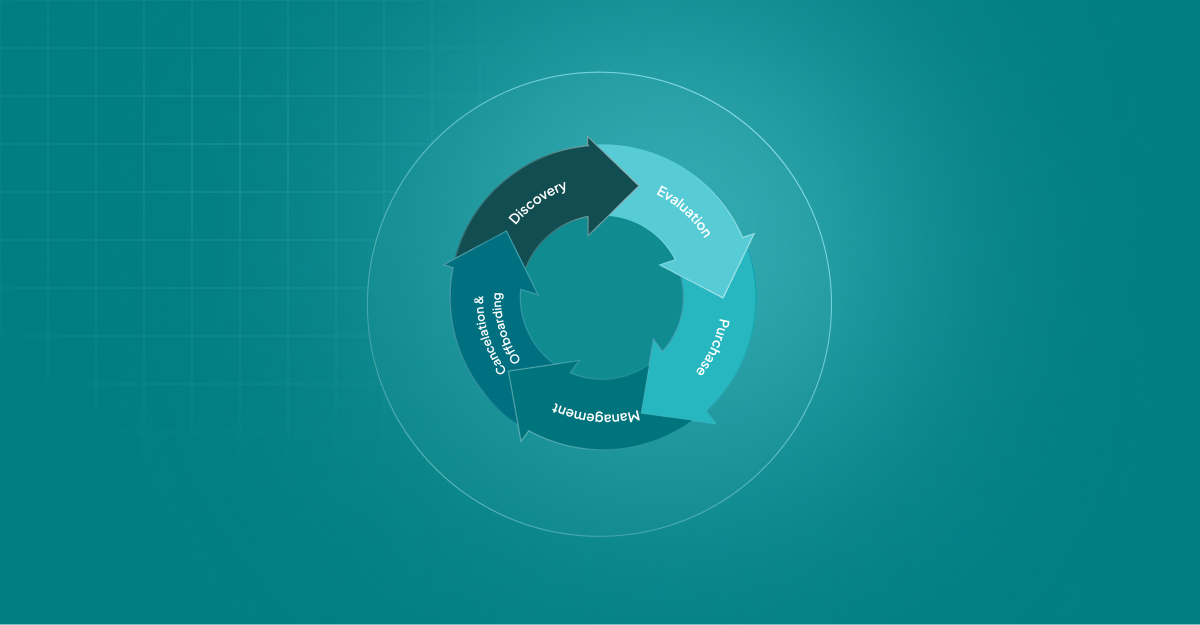Operations is the nervous system inside any startup. It connects all the different parts of the business, and makes sure they work in unison. Without operations, startups wouldn’t be able to function day-to-day, let alone scale.
So hitting Ops KPIs is critical. Meet those goals, and startups are more likely to gain momentum, attract investment, and outperform competitors. For these reasons, ensuring COOs and their teams are empowered to not just achieve operational efficiency, but operational excellence, should be a priority.
But often, the very things that startups use to improve their margins and productivity can be the same things that end up undermining them. Case in point: software subscriptions. It’s cheaper than full time hires or legacy software, and helps automate tasks so human resources can be used more strategically. Left unchecked, however, it can introduce overspending, hamper collaboration and expose businesses to data security risks.
That presents serious challenges for COOs, whose job it is to ensure the smooth and efficient running of the business. And with businesses onboarding more SaaS applications than ever – Gartner predicts that global cloud spending will reach $500 billion in 2022 – it’s imperative to get a handle on it today.
SaaS management platforms are the new frontier for startup COOs. Implementing technology to help manage the whole software stack means startups run more smoothly, see more value from one of their biggest investments, and scale.
Scaling startup operations in uncertain times
Chief Operating Officers are the unsung heroes of startups. COOs have a wide remit, spanning infrastructure, business continuity, and team and culture. Post-pandemic, their job has become even more challenging. According to PWC, 44% of COOs are worried about employee shortages and employee turnover, and 36% about the ongoing need for remote work. Meanwhile, revenues are harder to predict, and the economic downturn means investment is getting harder to secure.
The result? It’s getting harder for COOs to hit targets and ensure startups stay on track for scale. That’s why 44% are looking to their technology, prioritizing digital transformation to ensure operations are optimized for success. It’s a smart move. But with a focus on one key area – software management – COOs can make significant headway against a number of these challenges and move the needle on important business goals.
How software management improves startup operations
For startups trying to achieve operational excellence in these conditions, there are different levers to pull and metrics to measure. But some of the most important when it comes to driving growth are:
- Employee Turnover Rate: the number of employees who leave within a given time period
- Employee Efficiency: the amount of an employee's working time that is used for billable (as opposed to administrative) work
- Operating Margin: the amount of profit made on a dollar of sales after production costs (like wages) are deducted
- Operating Cash Flow: the amount of money going into and out of the business.
SaaS management platforms can help improve results against all four.
Employee turnover rate
Some of the major causes of employee turnover are poor culture and, well, the perception of too much work. Lack of SaaS management contributes negatively to all of the above. For Finance teams in particular, chasing other team members to reconcile software spend at month end eats into their time and causes bad blood between teams. In our survey of Finance and IT leaders, 53% found collaboration a challenge, and nearly a third said they felt saaS was having a negative impact on culture.
Software management platforms automate time-consuming manual admin, and ensure the software being used across the rest of the business is encouraging collaboration and enhancing productivity. It keeps employees happy, and keeps them in their jobs.
Employee Efficiency
Another common reason for employee turnover is lack of career progression. If Finance team members have to spend most their time on manual admin instead of more valuable, strategic initiatives, it causes two problems. First, those employees are more likely to disengage and churn, and second the business isn’t getting maximum value from its human experts. In our survey, 58% of respondents said that manually managing SaaS prevented them from doing more important, strategic work
Software management platforms make it easy to build processes that streamline the discovery, purchase, management and cancellation of SaaS. It frees up valuable (and expensive) team time to focus on strategic work that drives growth.
Operating Margin
SaaS can improve productivity and add important functionality across the business, both of which contribute to higher sales. But poorly-managed SaaS can in turn incur a number of expensive hidden costs, shrinking rather than growing operating margins. These can range from the small, like monthly subscription fees for unused SaaS, to the big, like non-compliance fines for unvetted software.
Software management platforms give visibility over the full software stack, so COOs can understand what they have, what’s being used, and what’s adding value. With good analytics, it’s easy to find opportunities to reduce spend and project future software budgets.
Operating Cash Flow
Even if the business is making money, poor software management practices can slow cash flow and growth. With little or no visibility over SaaS applications, payments can happen at unexpected times or worse, if company cards get compromised, payments for core SaaS get missed, and well, you get the picture. It’s not good.
Software management platforms enable Ops leaders to manage all subscriptions in one centralized platform to make payments, cancel subscriptions and issue secure virtual cards in a click.
Cledara helps COOs scale smoothly
Implementing new software with smart processes is not a piece of cake...COOs need the confidence that whichever software management platform they choose, it will integrate seamlessly with existing systems, and not cause any friction.
Cledara helps COOs control business-wide software from approvals, spend, payments and admin. That means more time for the work that matters, money saved, and most importantly, helping you get the most out of the software you depend on to serve your customers.
To find out more about how software management improves operational excellence, download “Ops!...I did it again”, our new free eBook for Ops leaders.











.webp)
.webp)
%2520(1).webp)
.webp)




.webp)